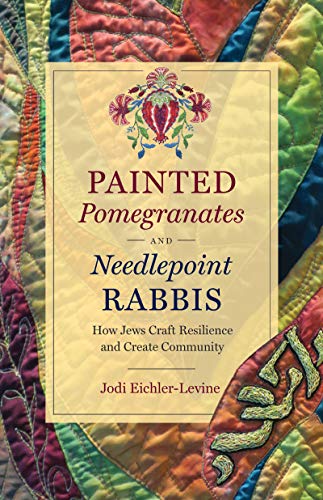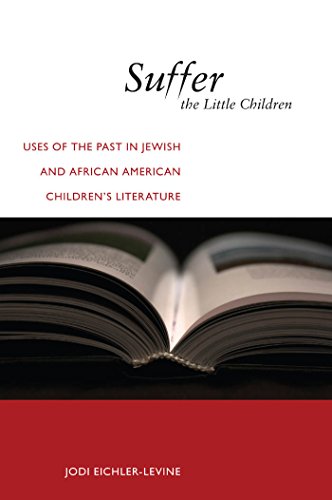Painted Pomegranates and Needlepoint Rabbis | Suffer the Little Children
Painted Pomegranates and Needlepoint Rabbis: How Jews Craft Resilience and Create Community (UNC Press, 2020).

Exploring a contemporary Judaism rich with the textures of family, memory, and fellowship, Jodi Eichler-Levine takes readers inside a flourishing American Jewish crafting movement. As she traveled across the country to homes, craft conventions, synagogue knitting circles, and craftivist actions, she joined in the making, asked questions, and contemplated her own family stories. Jewish Americans, many of them women, are creating ritual challah covers and prayer shawls, ink, clay, or wood pieces, and other articles for family, friends, or Jewish charities. But they are doing much more: armed with perhaps only a needle and thread, they are reckoning with Jewish identity in a fragile and dangerous world.
The work of these crafters embodies a vital Judaism that may lie outside traditional notions of Jewishness, but, Eichler-Levine argues, these crafters are as much engaged as any Jews in honoring and nurturing the fortitude, memory, and community of the Jewish people. Craftmaking is nothing less than an act of generative resilience that fosters survival. Whether taking place in such groups as the Pomegranate Guild of Judaic Needlework or the Jewish Hearts for Pittsburgh, or in a home studio, these everyday acts of creativity — yielding a needlepoint rabbi, say, or a handkerchief embroidered with the Hebrew words tikkun olam — are a crucial part what makes a religious life.
Suffer the Little Children: Uses of the Past in Jewish and African American Children’s Literature (NYU Press, 2013)

This compelling work examines classic and contemporary Jewish and African American children’s literature. Through close readings of selected titles published since 1945, Jodi Eichler-Levine analyzes what is at stake in portraying religious history for young people, particularly when the histories in question are traumatic ones. In the wake of the Holocaust and lynchings, of the Middle Passage and flight from Eastern Europe’s pogroms, children’s literature provides diverse and complicated responses to the challenge of representing difficult collective pasts.
In reading the work of various prominent authors, including Maurice Sendak, Julius Lester, Jane Yolen, Sydney Taylor, and Virginia Hamilton, Eichler-Levine changes our understanding of North American religions. She illuminates how narratives of both suffering and nostalgia graft future citizens into ideals of American liberal democracy, and into religious communities that can be understood according to recognizable notions of reading, domestic respectability, and national sacrifice.
If children are the idealized recipients of the past, what does it mean to tell tales of suffering to children, and can we imagine modes of memory that move past utopian notions of children as our future? Suffer the Little Children asks readers to alter their worldviews about children’s literature as an “innocent” enterprise, revisiting the genre in a darker and more unsettled light.